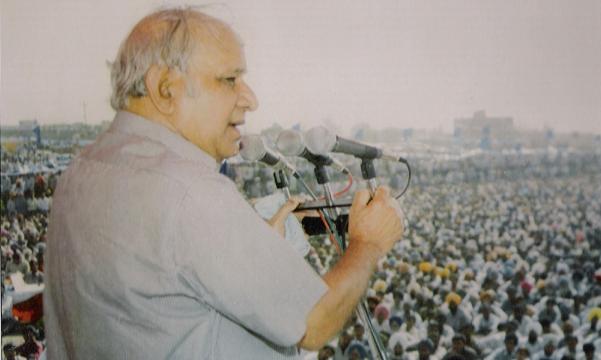
Punjab and Dalit Politics
Kejriwal played Dalit card in Punjab. He played that card in Delhi and walked away with a good number of seats. He is not known as the friend of Dalits. In fact, his public life started almost with opposition to the important safeguards that have been granted to Dalits.
He was an active leader of “Youths for Equality” whose agenda was to counter the affirmative action policy. The India against Corruption was an experiment to mobilise the masses wrongfully against the political establishment.
The entire plan was hatched in India Foundation, an organ of RSS, and RSS was the co-ideologue in the entire movement. The India Foundation hold regular meetings with Ramdev Baba, RSS representatives, and Hajare of Ralegaon Siddhi. The shows at Ramlila Maidan were stage managed and funded by the Right wing RSS. Kejriwal is a friend of RSS.
There is a big political space for Dalits all over India.
Their sheer number and their common history of suffering at the hands of the caste Hindus has the potential to ally them into a formidable alliance not only regionally, but also nationally, and increasingly internationally.
The original game plan of the BSP was to mobilise the Dalits politically in the small states, particularly, the states of Haryana and Punjab, and build it from there so that politics in the bigger states like UP, Maharashtra, Bihar, and other important states could be consolidated.
However, the rich dividends came from the largest state in India, that is, Uttar Pradesh. This is not only due to population share, but also the strong movement-based mobilisation in UP. The Hindi Belt (known as cow belt) can see the shift in power in favour of Dalits in the future and it is unstoppable. The Hindi Belt is having the significant population of Chamars and its subcastes. This is the case from Kashmir down to Maharashtra.
Coming back to Punjab, the United Punjab was the second most bastion of the Ambedkarite movement, after the Central part of India. The followers of Babasaheb Ambedkar hailed from all over India, and united Punjab was an important centre for Ambedkarite politics. The Dalits were also strong in United Bengal.
The population of Dalits in Bengal even today is over 22 percent, and they are the kingmakers in Bengal, due to their religious consolidation as Matua Movement. Punjab is very important for the Ambedkarite movement. With the 31 percent population, the Dalits in Punjab should be able to form the government. It is not a dream, but the reality which will be evident, if not today, tomorrow.
Though Punjab was the bastion of Ambedkarite movement, it has its own contradictions and they are more visible in the religious field. Sikhism was born to destroy Brahminism, but the Jat Sikhs dominated this religion and other converts were reduced to the same status in their previous caste system.
But the Dalits in Punjab started with a strong religious identity as the Ravidasia, and prior to that as the Adi-Hindus (pre-Hindus). They have twin role models as Babasaheb and Guru Rohidas. There are two divisions among the Ravidasis and those are whether to follow as the Ravidasis or follow the Buddha’s way. In reality, there is no contradiction as Babasaheb resolved it in the book “Who were the untouchables?”, which he dedicated to three saints from the untouchable background: Chokhamela, Ravidas, and Nandnar and linked his understanding to the Buddhist origin of untouchability as a conflict between Brahminism and Buddhism. So there is no contradiction.
But the Hindutva forces have been always trying to hinduise the Dalits. The large scale hinduisation of Bhangis as Valmikis is very interesting from the sociological point of view. The discourse and the strategy are the same, and that is, to link the untouchables to some Brahmin models. So the religious attitudes of the people in Punjab also play politically and this is where the fissures start arising.
A consolidated Ambedkarite movement can resolve the issues and as a matter of fact, the Chamars and Bhangis, have fought together against their common oppressor recently. There is a growing awakening in Punjab which is reflected in the cultural assertion in songs and popular charts. It is all good and nice, but Punjab is an important key to consolidating the Ambedkarite movement all over India.
There is no major country in the world where the untouchables from Punjab have not migrated. They have taken Babasaheb with them everywhere they went. It is time to consolidate the political power. Punjab has a power to set revolutionising forces free to change the fate of this country.
Author – Mangesh Dhaiwale, human rights activist
Subscribe to our weekly newsletter –
[mc4wp_form id=”8673″]



+ There are no comments
Add yours